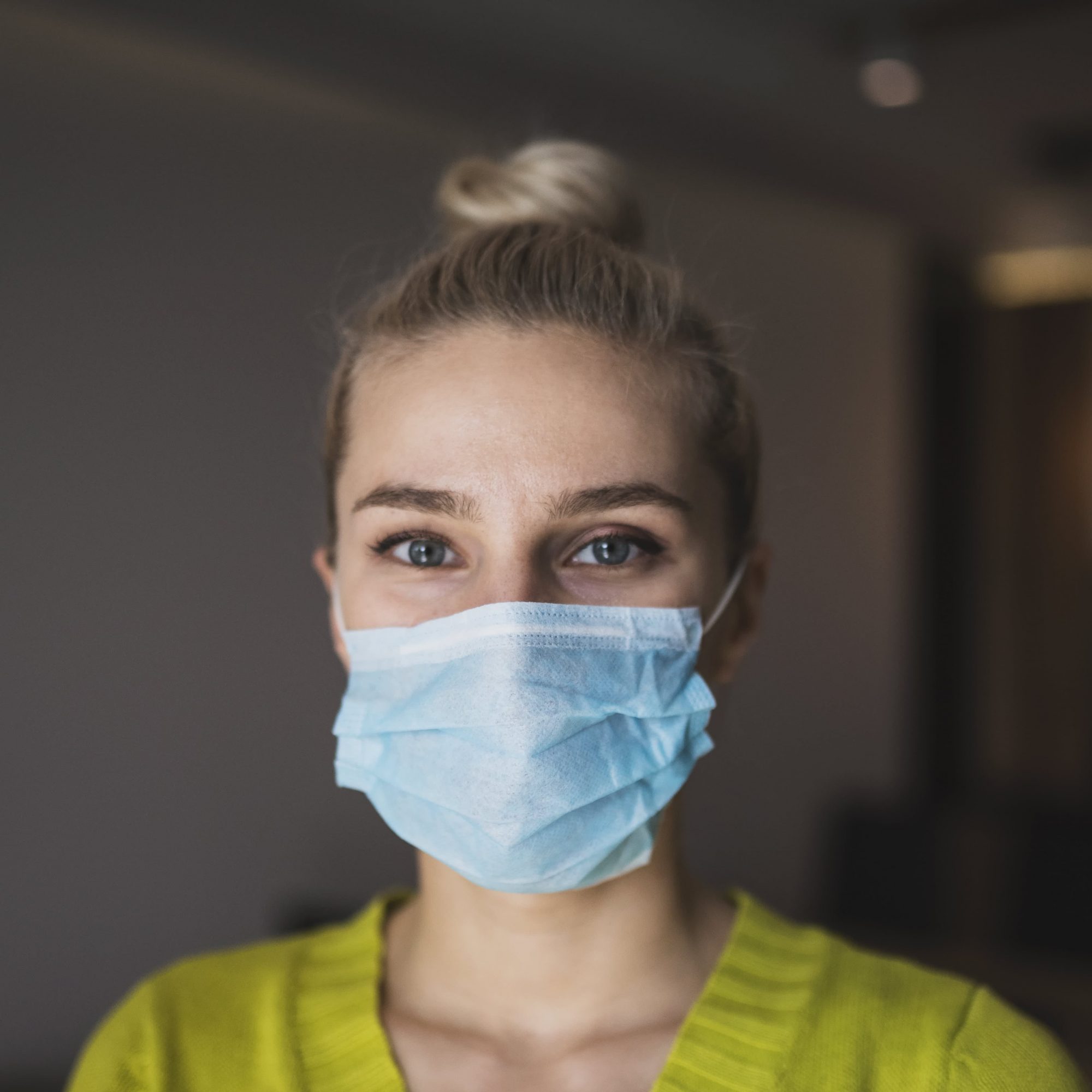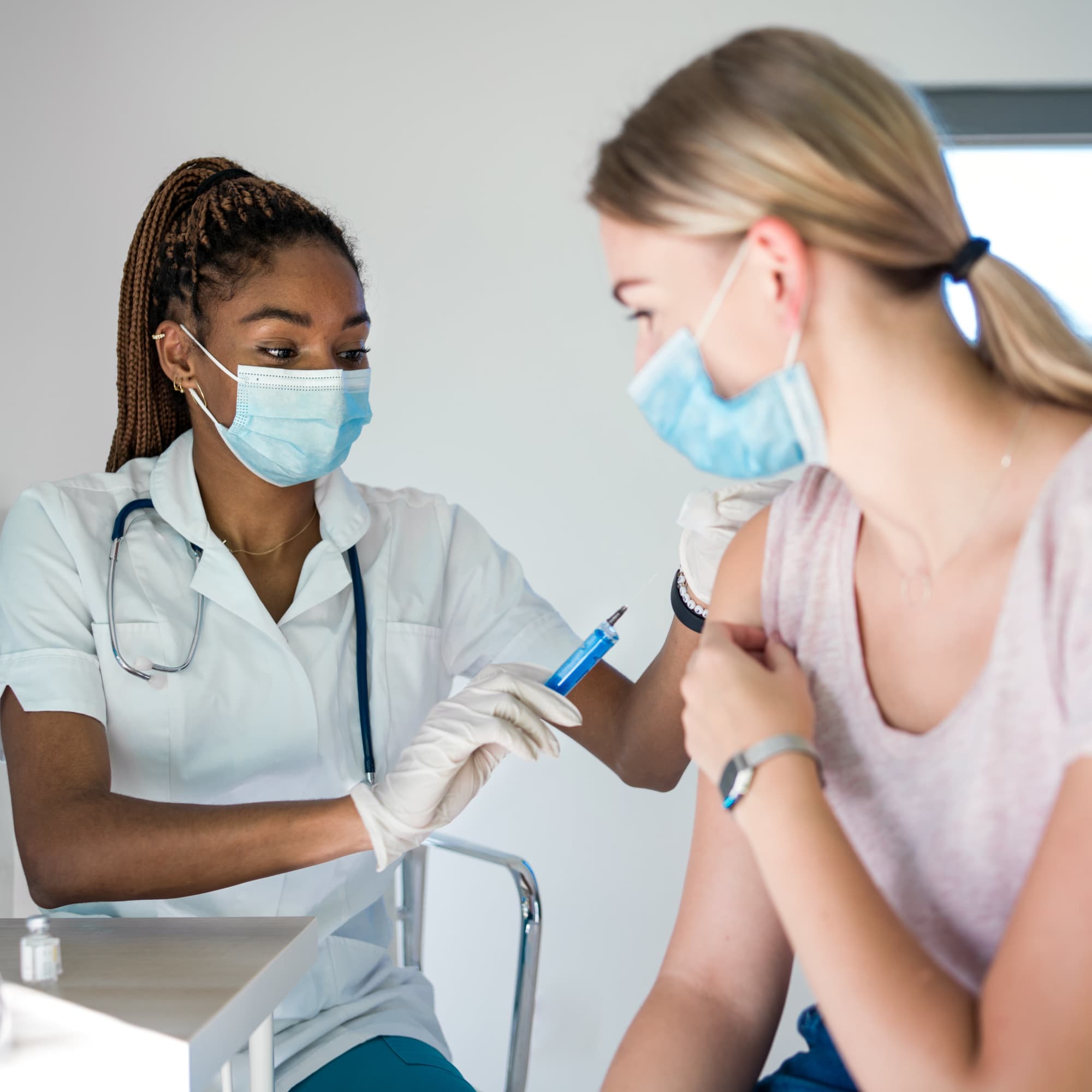
- POPSUGAR Australia
- Fitness
- Here’s How Long You Should Wait to Get Vaccinated If You’ve Already Had COVID-19
Here’s How Long You Should Wait to Get Vaccinated If You’ve Already Had COVID-19

If you’ve already had a case of COVID-19, the guidelines from the Centers for Disease Control and Prevention (CDC) clearly state that you should still get the vaccine. However, it’s a little less clear how long you should wait to be vaccinated after recovering from the illness. We asked experts for some guidance.
How Long Should I Wait to Get Vaccinated After COVID-19?
William Schaffner, MD, medical director of the National Foundation For Infectious Diseases (NFID), told POPSUGAR that if you currently have COVID-19, you should wait until you’ve recovered before getting vaccinated. “If you have COVID-19 without symptoms, wait at least 14 days,” Dr. Schaffner said. “This advice applies to both doses, so if you receive the first dose of vaccine and then get infected, you should wait before getting the second dose.” Don’t worry – it’s safe to delay the second dose beyond the typical three- to four-week window, if necessary.
Avi Varma, MD, a board-certified family medicine physician based in Atlanta, said that as long as you’ve completed the isolation period and your symptoms have resolved, it’s safe to get the COVID vaccine. But she noted there is one exception: “If you were treated with monoclonal antibodies, then you must wait a full 90 days before receiving the COVID vaccine.”
It’s also worth noting that, regardless of how long ago you had COVID-19, you shouldn’t get the vaccine if you have a cold, the flu, or any other type of infection. “If [someone] has an active infection, regardless of whether it’s COVID-19 or another infectious disease, [their] immune system is already engaged in battling the infection, so the vaccine may not be as effective in training the immune system as hoped,” explained Amit Kumar, PhD, a researcher and scientist and CEO of Anixa Biosciences, a company that’s working to develop therapies and vaccines focused on critical unmet needs in infectious disease.
Will the Vaccine Affect Me Differently If I’ve Had COVID-19?
Dr. Schaffner said that if you’ve already been infected, you’re slightly more likely to experience side effects after getting the vaccine compared to someone who hasn’t had the virus. “You may have a sore arm or other symptoms that last a day or two. It doesn’t matter how severe your case was,” Dr. Schaffner told POPSUGAR. “COVID-19 vaccines can be given safely to individuals who have had a previous infection, whether or not they had symptoms.”
Dr. Varma emphasized that, although the side effects of the vaccine are unpleasant, they’re not cause for concern. “We know that both the Pfizer and Moderna COVID vaccines are reactogenic. What this means is that you may develop certain adverse reactions, including fevers, chills, muscle aches, joint pains, and a sore arm following the vaccine,” Dr. Varma explained. “These are all normal immune responses to the vaccine, and it doesn’t signal something going wrong.” These side effects are a sign that your immune system is producing antibodies that will ultimately help you fight off the COVID-19 virus should you be exposed.
Dr. Varma said that typically, these symptoms are milder after the first dose than the second dose. “The first dose is known as a primer, which primes the immune system to react to the vaccine. By the time the second dose is given, the body already has some antibodies made, so the immune system is able to more quickly react to the vaccine and create an even stronger immune response,” Dr. Varma explained. “Therefore, the immune response to the second dose is more likely to cause adverse reactions compared to the first dose.” At least that’s typically the case for someone who has never been infected with COVID-19. If you’ve had the virus, you may have antibodies that would make you more likely to experience side effects with both doses.
If you do develop symptoms, you can take a pain reliever, such as ibuprofen or acetaminophen, to help ease the discomfort. “It’s fine to take painkillers if you need them after getting vaccinated, but not before,” Dr. Schaffner told POPSUGAR. Taking medicine before the vaccine could dampen your body’s immune response.


